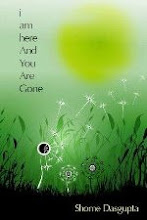Thursday, September 23, 2010
Linda Olsson, On Reading
"I recently had an e-mail from a friend in Sweden. He told me he had been on his way to work that morning and had happened to be standing next to a young woman in the crowded subway train. She was reading a book and seemed to be completely lost to the world, with tears streaming down her face. As he bent over a little he could see that she was reading Astrid and Veronika, my first novel. The message moved me utterly, of course.
When I was a child living in Sweden we used to call grandmother every Christmas Eve. She lived in the US and it was expensive to make the toll call, so we had to line up prepared to use the short time allotted each one of us. When it was my turn I would press the receiver to my year and wait for the miracle. My grandmother’s voice. Her words in my ear sounding so close, as if she was there in the room with us. I couldn’t understand it. But it was a very short moment. Now, when my grandmother is long gone, I still have her letters. And in them I still hear her voice. See her face. Her words in her driven handwriting still bring out the feelings that we had for each other. I can see her, hear her. And it happens that I am moved to tears when I read them.
Writers are lonely people, I think. I am. My work, if you can call it that, takes place at odd hours, often very late at night, and in complete isolation. I have no colleagues to test ideas on, or discuss problem solutions with. Quality control happens only after the fact, when my manuscript leaves my computer. And I am rarely present when the miracle happens, when my words reach a reader. I do read reviews, of course (I have never believed writers who claim they don’t), but reviewers are not like regular readers. Their reading is work, while I hope that others will read for pleasure. I do get mail from readers and each message is wondrous. My readers, wherever in the world they happen to be, write to tell me that they have been moved by my words. The miracle has truly happened.
I still don’t understand how phones work, though I often rely on my mobile to connect me with those I love. But I am even more intrigued by how the written word works. How can it be that the symbols that I type on my keyboard can instil the feelings that I invest in them in a reader across the world? In many cases in translation, too. If I talk to a person on the phone, then he or she is at least partially present in our communication. But if I read a letter or text message we are communicating entirely in code. We can’t see each other, can’t hear each other. Yet, the other person is there, on my screen or in my hands as I read the words. I can see him, hear him and the letters in front of me have the capacity to move me in some way. Perhaps this fact contributes to the difficulty of making books into films. Readers have already seen the movie and any other version is likely to disappoint.
It is sad to consider that in spite of this extraordinary capacity to communicate that is imbued in the written word, it is so often used to mislead and deceive, and to communicate hateful or frightening messages. But abuse of power seems be present in all cultures, at all times. And the written word has enormous power."
{For more information about Linda Olsson, please visit her website here.}
Subscribe to:
Post Comments (Atom)














No comments:
Post a Comment